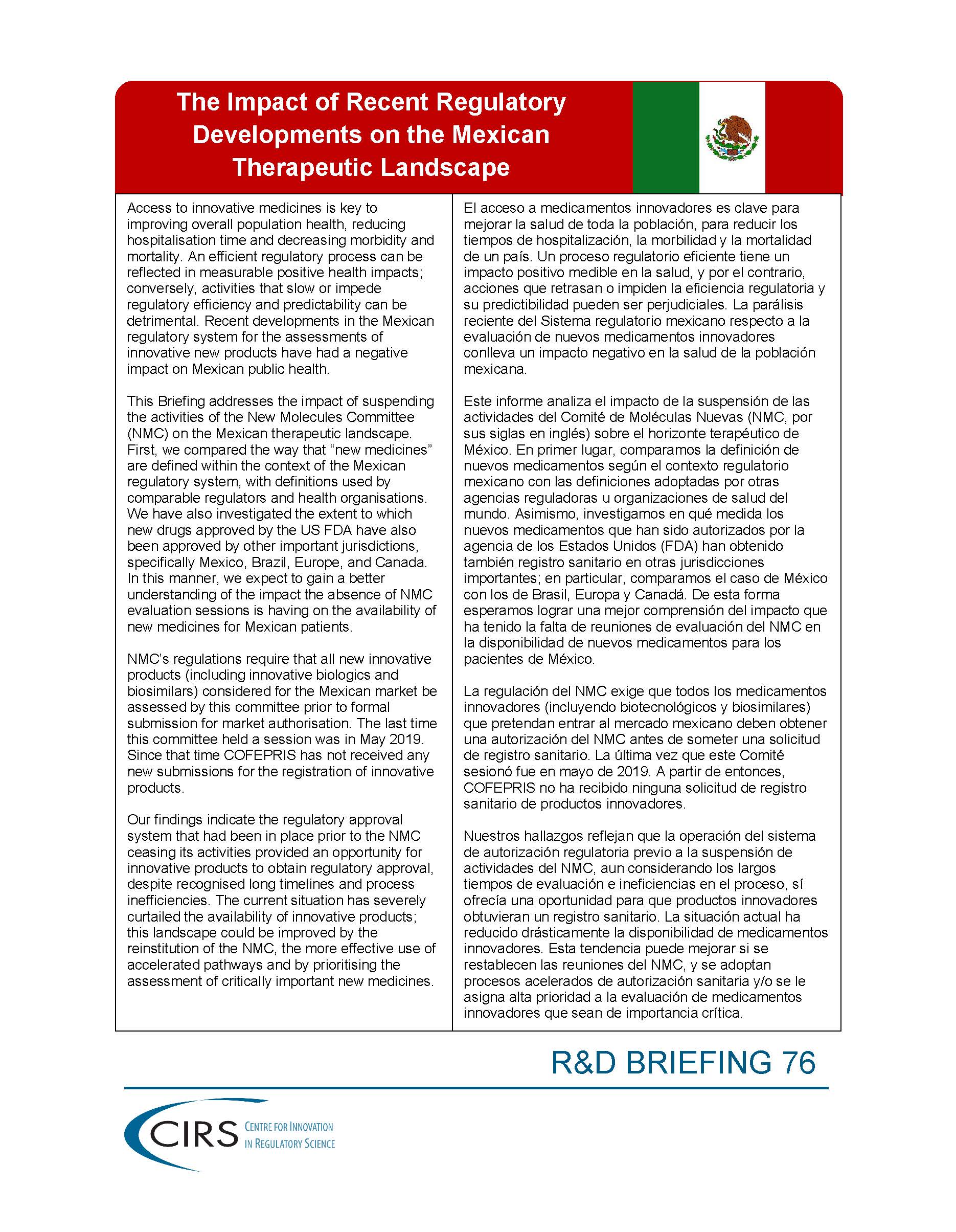An efficient regulatory process can be reflected in measurable positive health impacts; conversely, activities that slow or impede regulatory efficiency and predictability can be detrimental. Recent developments in the Mexican regulatory system for the assessments of innovative new products have had a negative impact on approvals of innovative medicines.
This CIRS Briefing addresses the impact of suspending the activities of the New Molecules Committee (NMC) on the Mexican therapeutic landscape. Our findings indicate the regulatory approval system that had been in place prior to the NMC ceasing its activities provided an opportunity for innovative products to obtain regulatory approval, despite recognised long timelines and process inefficiencies. The current situation has severely curtailed the availability of innovative products; this landscape could be improved by the reinstitution of the NMC, the more effective use of accelerated pathways and by prioritising the assessment of critically important new medicines.
If you have any questions or comments on this Briefing, please don’t hesitate to get in touch with Dr Lawrence Liberti: lliberti@cirsci.org
—
Update July 2020
In this Addendum to R&D Briefing 76, we further compare the regulatory activities in Mexico in the context of the Level IV PAHO National Regulatory Agencies of Regional Reference (NRAr), excluding Cuba and Colombia. We have compared the regulatory approval activity of a cohort of products approved in the US FDA by Argentina, Brazil, Canada, Chile and Mexico, which account for over 75% of the population in the Americas and 93% of the region’s GDP.
Our updated observations reinforce those observed in our initial investigation, that despite some indication of a start of activity with the NMC, products are not progressing through the Mexican regulatory process efficiently. Further, when a similar cohort of products is compared across countries, we have observed a more limited availability of products in Mexico compared with some of the countries included in this analysis. The regulatory approval system that had been in place prior to the NMC ceasing its activities in 2019 provided an opportunity for innovative products to obtain regulatory approval, despite recognised long timelines and process inefficiencies. These current findings extend our previous observations that the current situation has severely curtailed the availability of innovative products; this situation could be improved by the full-scale reinstitution of the NMC, the more effective use of accelerated pathways and by prioritising the assessment of critically important new medicines.

